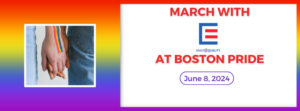Resources
Healthcare
Healthcare Access: The Massachusetts Health Connector has designated a temporary special enrollment period beginning on March 11, 2020, and ending on April 25, 2020, for currently uninsured Massachusetts residents. More information may be found here. If you work with clients/patients who are currently uninsured, please consider this opportunity to assist them to enroll in health insurance coverage for which they are eligible. The BRIDGE Program at CRI can assist in health insurance enrollment. They can be reached at (617) 502-1747 or www.crine.org/BRIDGE
Elders
Sage USA is offering resources for LGBT Elders. Their hotline can be reached at 877-360-5428 (LGBT).
Trans
Guiding Principles for Gender Affirming Care: - The Mass Trans Health Coalition has put together resources for patients, providers and insurers for gender affirming care, in the time of COVID-19 .
The Trans Lifeline - The Trans Lifeline offers direct emotional and financial support to trans people in crisis - for the trans community, by the trans community.
Know Your Rights - You have the right to receive care and access services during the COVID-19 outbreak. Discrimination is still illegal. The Transgender Legal Defense and Education Fund has therefore created this Know Your Rights guide in both England and Spanish to aid transgender people in navigating COVID-19 resources.
Youth
The Trevor Project 866-488-7386 24/7 suicide prevention & support line for LGBTQ & GNC youth. The Trevor Project Lifeline offers phone calls with trained counselors, while Trevortext connects by text with a specialist. If you need someone just to chat with Trevor Chat is free and confidential. TrevorSpace is an online forum and social network for LGBTQ+ youth and their allies under 25.
www.ma-lgbtq.org -This is the MA LGBTQ Youth Commission's interactive map of local resources throughout Massachusetts. Many local LGBTQ youth organizations have already shared ways in which they will stay connected to clients virtually throughout this pandemic. Contacting these organizations directly using the information found in our resource map is the best way to stay up-to-date on virtual offerings they have during this time.
It Gets Better Project - Connects young LGBTQ+ people with the global LGBTQ+ community by providing access to a vast collection of inspiring stories of hope and resilience.
Vaccine Information
Check your eligibility
Get vaccinated
Open Letter to Institutions Creating COVID-19 Response Plans
With the spread of COVID-19 forcing colleges, universities, workplaces, and other organizations across the state to develop novel strategies for this unusual moment, we ask all institutions to remember to be LGBTQ-inclusive in their emergency response planning. We encourage you to be mindful of the fact that many LGBTQ people may not have safe places to be quarantined or work remotely and that many of us may not feel safe accessing spaces that are not LGBTQ-friendly.
To universities and colleges, please be sensitive to the fact that not all LGBTQ students have a home to return to, should they be required to leave their dormitories. The welcoming communities you foster on your campuses have empowered many of your LGBTQ students to come out for the first time. We thank you for offering such nurturing environments – but also caution you to remember that, in becoming their fullest selves while in your care, some students have lost the ability to return to their homes safely. We therefore ask you to commit to guaranteeing that all students who do not have homes to return to are eligible for waivers to stay in the dormitories or that you are prepared with alternative options for accommodations.
Further, we ask all institutions to remember that our community is an at-risk population, due to our higher rates of tobacco use and compromised immune systems (often caused by HIV and cancer). Additionally, the discrimination faced by our population can create barriers to accessing stable housing, secure employment, and healthcare – all of which are critical risk factors as social determinants of health.
Now is not the time to lose sight of our fundamental values and shared belief in equity and fairness. While the urgency of crisis planning can threaten to eclipse these core principles, now, more than ever, it is critical that we all redouble our commitment to these values for at-risk groups like the LGBTQ community. To ensure that the burden of this crisis does not fall disproportionately on those most vulnerable, we therefore ask you to take time to consider these concerns and create inclusive emergency response plans.
Thank you,

Tanya V. Neslusan
Executive Director

